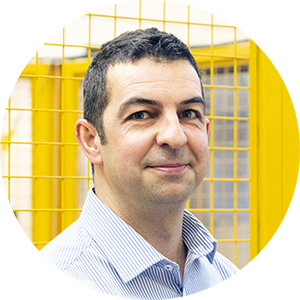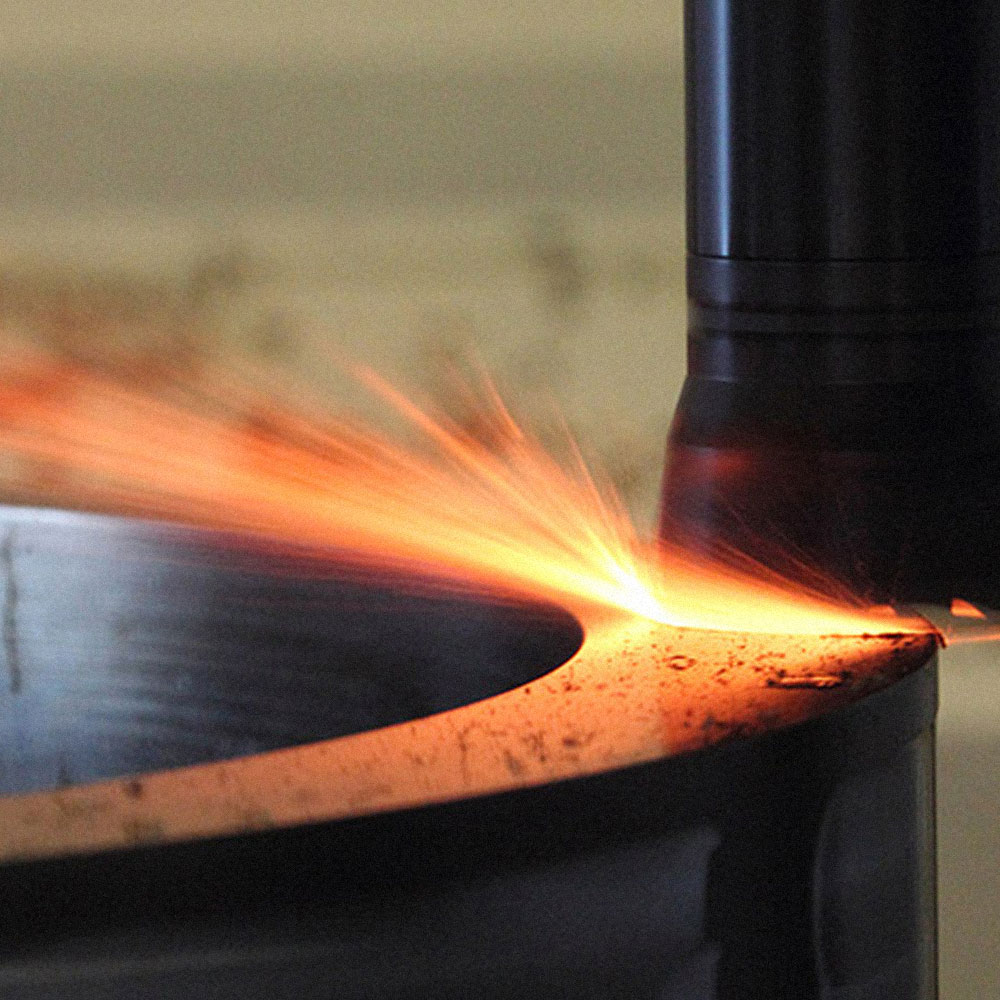 This month the Henry Royce Institute appointed Prof Martin Jackson as the new Core Area Champion for the Advanced Metals Processing (AMP) research theme. We sat down with Martin to discuss his sustainable vision for AMP, bridging the gap between research and commercial innovations and why he first took up materials science.
This month the Henry Royce Institute appointed Prof Martin Jackson as the new Core Area Champion for the Advanced Metals Processing (AMP) research theme. We sat down with Martin to discuss his sustainable vision for AMP, bridging the gap between research and commercial innovations and why he first took up materials science.
As the newest member of the Core Area Champions, what benefits do you think the Royce can bring to Sheffield and the wider materials community?
Sheffield is an important national hub for advanced manufacturing, building on its historic importance in steelmaking and glassmaking. The Royce will capitalise on the local industry infrastructure and expertise to provide a world-leading centre for advanced metals manufacturing for the next few decades. For me (as a Yorkshireman and Sheffield graduate!) this is an exciting opportunity and I would not dream of being anywhere else to work on the next generation of metals manufacturing challenges with the UK industry and academic community.
Your research background has spanned both academia and industry roles. Is there a need for a more joined-up approach to research and innovation across the UK?
Absolutely, having spent time working in industry and working closely with industry as an academic, it is important that we blur the boundaries between the two – Royce will facilitate and encourage this. I would like to see the interconnection of engineers, academics and industrialists in the Royce. We can also provide invaluable hands-on training for engineers in both industry and academia. The Royce will be a centre of constant learning and value-add to the manufacturing community. We may make some mistakes, as there will be some high-risk technical challenges, but with the right industry and academic teams it’s an exciting time to make a real step-change and ensure the UK is leading manufacturing innovation in metals.
What are your main priorities for the Advanced Metals Processing theme for the next 12 months?
Over the next couple of weeks and months, I will be reaching out to universities and key industry sectors and encourage them to join us on the Royce journey. This is a national facility and the knowledge and impact that is created within Royce will be reliant on scientists and engineers from all over the UK getting involved. We are already putting together key projects with industry and translational centres such as the HVM Catapults Centres to demonstrate that the Royce community can accelerate impact for UK businesses. Watch this space!
The metals industry is one of many working to reduce its carbon footprint. Are there any innovations on the horizon that will help the UK meet its decarbonisation targets?
Within Sheffield, Royce will play a key part in some of the EPSRC manufacturing hubs – such as SUSTAIN – developing carbon-neutral steel and ironmaking and smart steel processing. Another important focus for Royce will be making sure that we “do more with less”: the digitalisation of processes*, and development of reliable digital twins of advanced manufacturing processes will empower UK industry to have more confidence in materials and their properties, leading to less wasteful manufacturing processes. This will ultimately lead to increased productivity, economic growth and job creation. If we can combine recycling with light-weighting of vehicle parts then this will have a massive impact on CO2 emission reductions. The Royce is already working with the automotive sector to reuse aerospace waste machined turnings into next-generation parts for electric vehicles. We’ve only just begun this journey and what is really exciting is that the new Royce infrastructure and investment will enable us to develop new approaches for recycling, light-weighting and reducing the UK’s carbon footprint.
Materials Science and Engineering is sometimes overlooked as a degree course. What would you say most excites you about the discipline and why do you think it’s a good undergraduate choice?
Like many graduates, I’d never heard of Materials Science and Engineering until my physics A level teacher advised me to read “The New Science of Strong Materials: Or Why You Don’t Fall Through the Floor” by JE Gordon. I was fascinated and have been a massive fan of materials and metallurgy for nearly 30 years! It is a great subject to study and it gives you the grounding to go into a wide variety of different sectors. In fact, I believe most of my undergraduate cohort – the class of 1997 – are still working in materials industries. You are guaranteed an interesting job for life!
*Prof Martin Jackson will present at the upcoming Materials Research Exchange as part of the Royce’s ‘Materials for a Sustainable Society’ Programme. Click here to find our more.
Biography
Martin Jackson is Professor of Advanced Metals Processing at the University of Sheffield, he has led the development of the emerging FAST-forge route. While at Imperial College London, Martin developed an innovative forging test methodology, for which he won the IOM3 Titanium Prize 2003. The methodology Martin developed is now a recognised forgeability test in the ASM Handbook and has been since employed by the aerospace and nuclear build industry. In 2005 he won a RAEng/EPSRC Fellowship and in 2008 he moved from Imperial to Sheffield, providing a platform to develop research in both solid-state processing of titanium powder and titanium machining studies. He has since supervised over 25 PhD students and published more than 100 peer-reviewed journal and conference papers in processing of light alloys, including forging, machining and associated mechanical property development. He has been a member of the IOM3 Light Metals Board for more than 16 years and is the UK representative for the World Titanium Committee.



